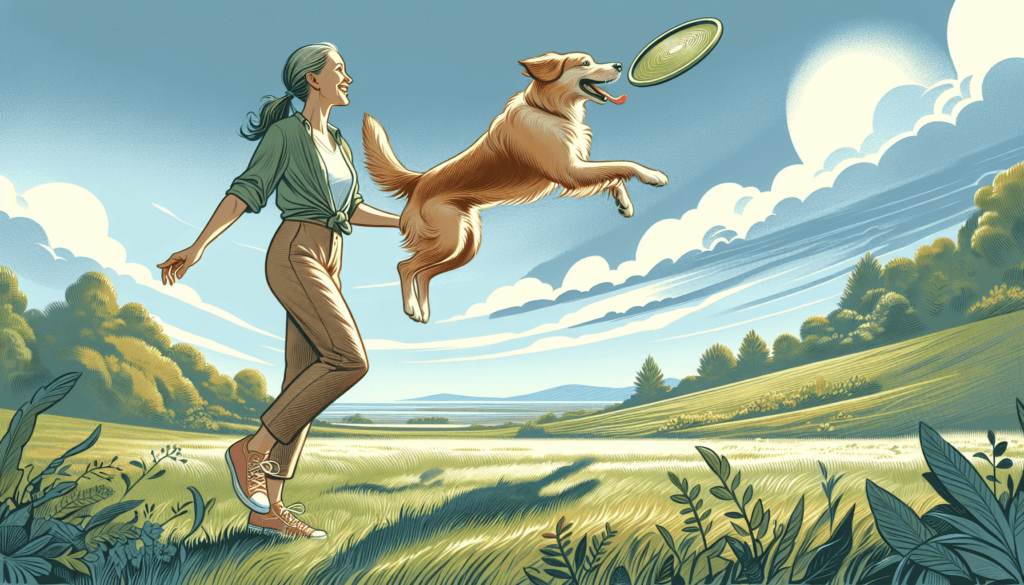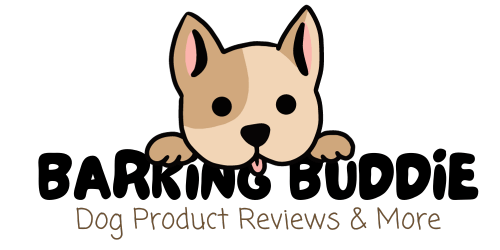In this article, you will discover effective strategies to foster positive interactions between humans and dogs within a dog community. Whether you are a dog owner, a dog lover, or someone who simply enjoys spending time in the company of our four-legged friends, these tips will help you create an environment where both humans and dogs can thrive. By understanding the importance of clear communication, setting boundaries, and promoting empathy, you can contribute to a dog community that is inclusive, harmonious, and filled with joyful moments. So, let’s explore how we can encourage positive human-dog interactions and strengthen the bond between our furry companions and ourselves.

Establish Clear Rules and Guidelines
Educate Dog Owners on Proper Etiquette
To promote positive human-dog interactions in a dog community, it is important to establish clear rules and guidelines. One of the first steps in achieving this is through educating dog owners on proper etiquette. By educating owners about the basics of dog behavior, body language, and appropriate interactions, they can better understand how to navigate social situations with their pets. This includes teaching them to recognize signs of discomfort or fear in their dogs, and how to respond appropriately to prevent negative situations from escalating.
Enforce Leash Laws and Off-Leash Areas
Another important aspect of encouraging positive interactions is enforcing leash laws and providing designated off-leash areas. Leash laws are put in place for the safety and well-being of both dogs and humans. By enforcing these laws, it ensures that dogs are under control and reduces the risk of aggressive encounters or accidents. Additionally, having designated off-leash areas allows dogs to roam and socialize with other dogs in a controlled environment, promoting healthy social interactions and play.
Encourage Responsible Dog Ownership
Responsible dog ownership is crucial in fostering positive human-dog interactions. This includes ensuring that dogs are kept on a leash when required, properly trained, and well-socialized. Dog owners should understand the importance of cleaning up after their pets and disposing of waste responsibly. By educating dog owners on the responsibilities that come with owning a dog, it helps create a community of responsible owners who prioritize the well-being and safety of their pets and those around them.
Organize Community Events and Activities
Dog Training Classes and Workshops
Organizing dog training classes and workshops is a great way to promote positive human-dog interactions within a dog community. These classes can provide education on basic obedience training, socialization techniques, and positive reinforcement methods. By equipping dog owners with the knowledge and skills to effectively train their dogs, it helps them establish a strong bond and fosters well-behaved dogs within the community. These classes also provide opportunities for dog owners to connect and share experiences, creating a supportive network of fellow enthusiasts.
Socialization Opportunities
Socialization is an essential aspect of a dog’s life, and providing opportunities for dogs to socialize with other dogs and humans is vital for their well-being. Organizing socialization opportunities such as playdates, dog-friendly events, or even dog parks helps dogs learn appropriate behaviors, improve their social skills, and build positive relationships with others. These interactions not only benefit the dogs but also provide a chance for dog owners to connect and share their experiences with fellow pet lovers.
Community Volunteer Programs
Community volunteer programs that focus on dog-related activities can also encourage positive human-dog interactions. These programs can involve activities such as dog walking, assisting in training classes, or volunteering at local animal shelters. By actively participating in these programs, dog owners and community members not only contribute to the welfare of dogs in need but also foster a sense of community and unity. This shared passion for dogs creates a positive environment where people can come together and learn from one another.

Promote Positive Reinforcement Training Methods
Educate Dog Owners on Positive Training Techniques
Promoting positive human-dog interactions involves educating and encouraging dog owners to utilize positive reinforcement training methods. Positive reinforcement focuses on rewarding desired behaviors instead of punishing unwanted behaviors. By educating dog owners about this approach, they can effectively train their dogs without resorting to harmful or intimidating techniques. This positive approach not only strengthens the bond between dogs and their owners but also promotes trust and cooperation between humans and animals.
Share Resources and Training Material
Providing access to resources and training materials is another way to promote positive reinforcement training methods. This can include sharing articles, books, videos, or even partnering with local trainers who specialize in positive training techniques. By making these resources readily available, dog owners can learn and implement effective training methods, enhancing their ability to communicate and connect with their dogs. Sharing knowledge and encouraging positive training techniques creates a supportive community that prioritizes the well-being and happiness of dogs.
Provide Access to Professional Trainers
In addition to educational resources, providing access to professional trainers can greatly benefit dog owners and their interactions with their pets. Professional trainers can offer personalized guidance, address specific behavior issues, and provide hands-on training sessions. By offering access to these trainers through workshops, classes, or consultations, dog owners can receive expert guidance tailored to their specific needs. This support system not only enhances the relationship between dogs and their owners but also ensures that any behavioral challenges are addressed in a positive and effective manner.
Facilitate Communication Among Dog Owners
Create Social Media Groups and Forums
Creating social media groups and online forums specifically for dog owners in the community can facilitate communication and encourage positive interactions. These platforms provide a space for dog owners to share experiences, seek advice, and organize meetups. It allows for the exchange of information regarding training techniques, local events, or general dog-related topics. By fostering a sense of community online, dog owners can connect with like-minded individuals, build relationships, and support one another in their journey as responsible pet owners.
Host Regular Dog Owner Meetings
In addition to virtual platforms, hosting regular in-person dog owner meetings can further promote communication and connection within the community. These meetings can include informative talks, hands-on workshops, and opportunities for dog owners to interact and share their experiences. It provides a supportive environment where dog owners can ask questions, seek guidance, and learn from one another. These meetings also serve as a platform for discussing community-related issues and initiatives, fostering a sense of unity and collaboration.
Establish a Neighborhood Watch System
To ensure the safety and well-being of dogs and humans within the community, establishing a neighborhood watch system can be highly beneficial. This system can involve dog owners looking out for one another, reporting any suspicious or concerning activities, and sharing information regarding safety measures. By creating a network of vigilant dog owners, it helps deter potential problems and promotes a secure environment for everyone. This sense of community watch fosters responsible dog ownership and encourages positive interactions among dog owners.

Encourage Responsible Dog Walking
Promote Regular Exercise for Dogs
Regular exercise is essential for a dog’s physical and mental well-being. Promoting the importance of regular exercise encourages dog owners to prioritize daily walks and physical activities for their pets. This not only helps keep dogs fit and healthy but also reduces restlessness and behavioral problems. By organizing events or initiatives that promote regular exercise, such as group walks or challenges, it creates a supportive community that emphasizes the benefits of physical activity for both dogs and humans.
Educate on Proper Leash Handling
Proper leash handling is crucial in ensuring a controlled and safe walking experience for both dogs and their owners. Educating dog owners on the correct techniques for leash handling, such as using a sturdy leash and maintaining a proper grip, can prevent accidents and promote positive interactions with other dogs and pedestrians. Additionally, teaching owners to be mindful of their dog’s behavior and to respond appropriately when encountering other dogs on walks can help prevent conflicts and create a respectful walking environment.
Organize Group Walks or Meetups
Organizing group walks or meetups provides opportunities for dog owners to come together, socialize, and enjoy walks with their pets. These gatherings not only promote regular exercise but also allow dogs to interact and socialize with other dogs in a controlled environment. It fosters a sense of community and unity among dog owners, creating a positive atmosphere where experiences and tips can be shared. Group walks or meetups also serve as a platform for responsible dog owners to lead by example and demonstrate proper leash handling and dog etiquette.
Create Dog-Friendly Spaces and Amenities
Designate Dog Parks and Off-Leash Areas
Designating specific areas as dog parks or off-leash areas within the community is essential for promoting positive human-dog interactions. These spaces provide a controlled environment for dogs to socialize, play, and exercise off-leash. It allows for safe and supervised interactions between dogs and their owners, fostering a sense of community and camaraderie. Having designated dog parks or off-leash areas also ensures that dogs can enjoy their time outdoors while respecting the needs and boundaries of other community members.
Install Waste Disposal Stations
Proper waste disposal is a crucial aspect of responsible dog ownership, and installing waste disposal stations in key areas can encourage positive interactions within the community. These stations should provide easy access to waste bags and disposal bins, making it convenient for dog owners to clean up after their pets. By ensuring that waste is properly disposed of, it creates a cleaner and more enjoyable environment for everyone while promoting responsible dog ownership.
Provide Water and Shade Areas
When creating dog-friendly spaces, it is important to provide access to water and shade areas. Dogs, like humans, need to stay hydrated, especially during outdoor activities. Having water stations or fountains within dog parks or other communal areas ensures that dogs have access to clean water. Additionally, providing shaded areas or installing shelters allows dogs to take breaks from the sun and remain comfortable during their time outdoors. By prioritizing their well-being and comfort, it encourages positive interactions and enhances the overall experience for both dogs and their owners.

Address Aggressive Behavior and Conflict
Offer Training for Aggressive Dogs
Addressing aggressive behavior is crucial for promoting a safe and harmonious dog community. Offering training programs specifically designed for aggressive dogs can provide dog owners with the tools and resources needed to manage and modify their dog’s behavior. These programs focus on positive reinforcement techniques and provide guidance on how to address and prevent aggressive tendencies. By addressing aggression proactively, it helps create a community that prioritizes the safety and well-being of all its members.
Implement Reporting and Mediation Procedures
Implementing reporting and mediation procedures can be essential in addressing conflicts or concerns within the dog community. Establishing clear channels for reporting incidents or problems allows dog owners to voice their concerns and seek resolution. Mediation procedures can involve trained professionals who can help facilitate conversations between parties involved, working towards finding mutually agreeable solutions. By providing a structured process for conflict resolution, it promotes open communication, fosters understanding, and ultimately encourages positive interactions within the dog community.
Work with Local Authorities to Enforce Safety Measures
Collaborating with local authorities is essential in enforcing safety measures within the community. This can involve working closely with animal control officers or law enforcement to ensure that leash laws and other regulations are upheld. By actively engaging with the authorities, it sends a strong message that the community prioritizes safety and responsible dog ownership. This collaboration also allows for the implementation of educational initiatives, such as workshops or campaigns, to further promote positive human-dog interactions and address any concerns or issues.
Promote Health and Welfare
Educate on Vaccination and Healthcare
Promoting the health and welfare of dogs within the community involves educating dog owners on the importance of vaccinations and regular healthcare. By educating owners about the significance of vaccinations in preventing the spread of diseases, it helps create a healthier and safer dog community. Additionally, educating owners about regular veterinary check-ups and preventive care measures can ensure that dogs receive the necessary medical attention they need, promoting their overall well-being and quality of life.
Highlight Importance of Regular Vet Check-ups
Regular veterinary check-ups are crucial for the early detection and prevention of health issues in dogs. Emphasizing the importance of these check-ups to dog owners encourages them to prioritize their pet’s health and well-being. Regular check-ups allow veterinarians to assess a dog’s overall health, provide necessary vaccinations, and address any concerns or issues that may arise. By promoting regular vet check-ups, it helps create responsible dog owners who are proactive in ensuring the health and welfare of their pets.
Foster Adoption and Rescue Programs
Another way to promote the health and welfare of dogs within the community is by fostering adoption and rescue programs. Encouraging dog owners to consider adopting from local shelters or rescue organizations helps provide loving homes for dogs in need. Adoption and rescue programs not only save lives but also promote responsible ownership and create a compassionate community. Through awareness campaigns, events, and partnerships with shelters, the community can come together to support these programs and contribute to the overall welfare of dogs.

Encourage Community Involvement and Support
Organize Fundraisers for Local Shelters
Organizing fundraisers specifically for local shelters is a meaningful way to encourage community involvement and support. These fundraisers can range from charity walks, bake sales, or online donation drives. By actively participating in these events, community members can contribute to the financial needs of shelters and assist in providing necessary resources for the care of shelter dogs. Organizing fundraisers not only raises funds but also generates awareness and fosters a sense of unity and compassion within the dog community.
Coordinate Dog-Friendly Events
Coordinating dog-friendly events within the community is an excellent way to promote community involvement and support. These events can include dog shows, pet parades, or festivals that celebrate the bond between dogs and their owners. By organizing these events, it encourages dog owners to come together, showcase their pets, and connect with fellow enthusiasts. It also provides an opportunity for local businesses to engage with the community, creating a win-win situation for all involved.
Create Opportunities for Volunteerism
Creating opportunities for volunteerism within the dog community encourages community members to actively participate in activities that benefit dogs in need. This can involve volunteering at local shelters, assisting in dog training or socialization programs, or even organizing adoption events. By offering various volunteer opportunities, it allows individuals to contribute their skills, time, and passion towards the welfare of dogs. Volunteerism fosters a sense of fulfillment and establishes a community that values empathy, kindness, and support.
Lead by Example
Promote Responsible Dog Ownership
Leading by example is incredibly powerful in promoting positive human-dog interactions within a dog community. Responsible dog ownership should be practiced and demonstrated by community leaders and influencers. These individuals can serve as role models, showcasing proper etiquettes such as cleaning up after their dogs, following leash laws, and ensuring their dogs receive proper training and socialization. By embodying responsible dog ownership, they inspire others to do the same and contribute to a harmonious and inclusive dog community.
Demonstrate Proper Socialization Techniques
Demonstrating proper socialization techniques is crucial in setting a positive example for other dog owners. Socializing dogs at a young age and exposing them to various environments, people, and animals helps prevent fear-based aggression and enhances their ability to interact positively with others. Community leaders can organize socialization events or provide guidance to dog owners on how to safely and effectively socialize their pets. By demonstrating proper socialization techniques, it fosters a community of well-socialized dogs and responsible owners.
Foster a Culture of Respect and Compassion
Leading by example also involves fostering a culture of respect and compassion within the dog community. This includes treating all dogs and owners with kindness and understanding, regardless of breed, size, or age. Encouraging empathy and compassion towards all animals creates an inclusive and supportive environment where everyone feels welcome and valued. By promoting a culture of respect and compassion, it sets the foundation for positive interactions and encourages dog owners to prioritize the well-being of their pets and those around them.
In conclusion, encouraging positive human-dog interactions within a dog community requires a multifaceted approach that addresses various aspects of responsible pet ownership. By establishing clear rules and guidelines, organizing community events and activities, promoting positive reinforcement training methods, facilitating communication among dog owners, encouraging responsible dog walking, creating dog-friendly spaces, addressing aggressive behavior and conflict, promoting health and welfare, encouraging community involvement and support, and leading by example, a dog community can flourish with positive interactions and create a safe and harmonious environment for both humans and dogs.


